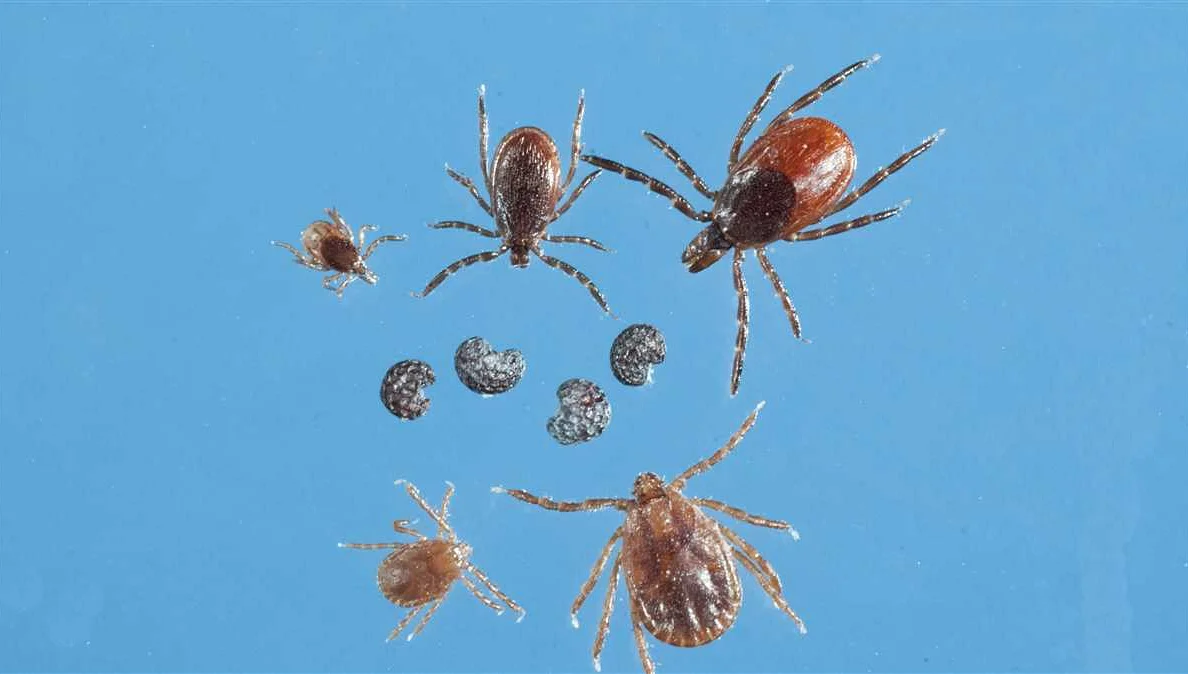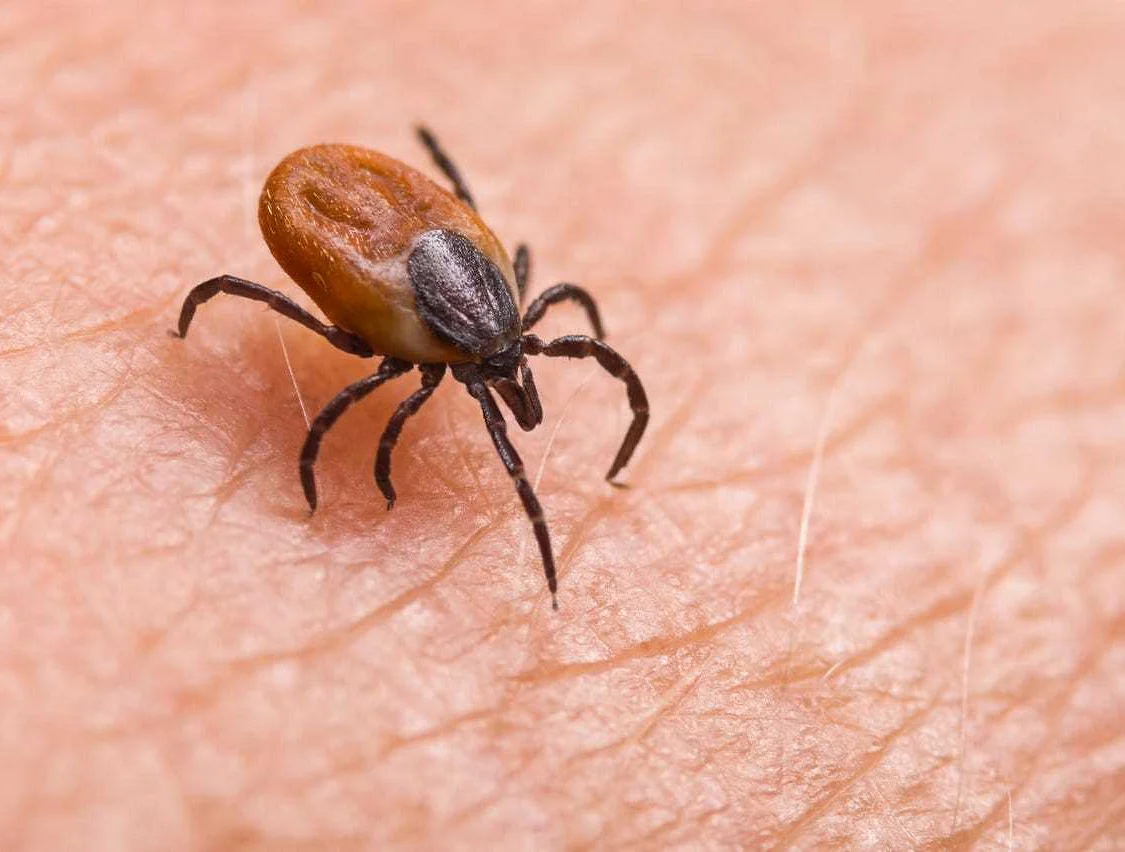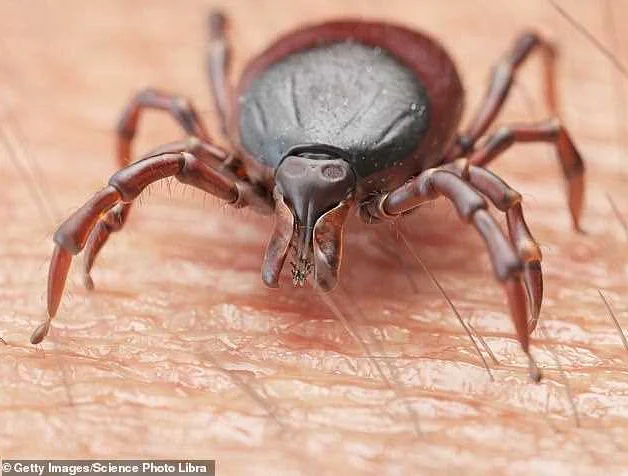19 adult St. Petersburg residents were bitten by ticks
Содержимое
Read about the recent outbreak of tick bites in St. Petersburg, with 19 adults from the city being affected. Learn about the symptoms, prevention, and treatment options for tick bites.
In an alarming incident, 19 adults in St. Petersburg, Russia have reported being bitten by ticks, with authorities now urging residents to be cautious when spending time outdoors. Ticks are known carriers of diseases such as Lyme disease and tick-borne encephalitis, making these recent cases a cause for concern.
The affected individuals have reported experiencing symptoms such as fever, fatigue, and a rash in the area of the tick bite. Prompt medical attention is crucial in such cases, as tick-borne illnesses can lead to serious health complications if left untreated. Health officials are advising anyone who has been bitten by a tick to seek medical advice to rule out any potential infections.
As the summer season approaches in St. Petersburg, residents are being reminded to take appropriate precautions to prevent tick bites. This includes wearing long sleeves and pants when venturing into grassy or wooded areas, using insect repellent that contains at least 20% DEET, and thoroughly checking for ticks after spending time outdoors. By following these measures, individuals can reduce their risk of tick bites and the associated health risks.
Authorities in St. Petersburg are working to raise awareness about the dangers of tick bites and are implementing measures to mitigate the risk. Public education campaigns, increased surveillance of tick populations, and improved access to healthcare resources are some of the steps being taken to protect the community from tick-borne illnesses. It is hoped that these efforts will help minimize the impact of tick bites on residents and ensure a safe and enjoyable summer for all.
Tick Bites: A Major Concern in St. Petersburg
Tick bites have become a major concern in the city of St. Petersburg, with 19 adults recently reporting being bitten. These incidents have raised alarm among residents and local authorities, as tick bites can lead to various health issues.
Ticks, small arachnids that feed on the blood of animals and humans, are known vectors for several diseases, including Lyme disease, babesiosis, and tick-borne encephalitis. The increasing number of tick bites in St. Petersburg has raised concerns about the potential spread of these diseases in the area.
Tick-borne diseases can cause symptoms ranging from mild to severe, depending on the specific disease and the individual’s immune response. Symptoms may include fever, fatigue, muscle aches, and in some cases, neurological problems. Prompt medical attention is crucial in order to prevent complications and ensure proper treatment.
Authorities in St. Petersburg are taking steps to address the issue of tick bites. Efforts are being made to educate the public about tick prevention measures, such as wearing protective clothing, using insect repellents, and conducting regular tick checks after spending time outdoors. Additionally, local parks and green spaces are being inspected and treated to reduce tick populations.
Residents are urged to be proactive in protecting themselves and their families from tick bites. This includes avoiding areas with high grass and dense vegetation, as these are known habitats for ticks. It is also important to thoroughly check for ticks after spending time outdoors and to seek medical attention if a tick bite is suspected.
By raising awareness and implementing preventive measures, the hope is to reduce the number of tick bites in St. Petersburg and minimize the potential impact of tick-borne diseases on the community. Collaboration between residents, healthcare professionals, and local authorities is essential in combating this growing concern.
Alarming Increase in Tick Bites
In recent months, St. Petersburg has seen a concerning rise in the number of tick bites reported among adults. Tick bites can lead to various diseases, including Lyme disease, which can have serious long-term effects on individuals if left untreated.
Health officials have been closely monitoring the situation and have noticed a significant increase compared to previous years. The warm weather and abundant green spaces in the area provide favorable conditions for ticks to thrive, leading to a higher risk of tick bites.
Ticks are known to reside in grassy and wooded areas, making it essential for individuals to take precautions when spending time outdoors. Wearing long sleeves and pants, using insect repellent, and performing regular tick checks are crucial steps in preventing tick bites.
If a tick bite is noticed, it is important to remove the tick immediately using fine-tipped tweezers and clean the affected area with soap and water. Individuals should also monitor the site of the bite for any signs of infection, such as redness or swelling.
Seeking medical attention is recommended if individuals experience symptoms such as fever, fatigue, muscle aches, or a rash after a tick bite. Prompt treatment can help prevent the development of complications and ensure a swift recovery.
Public awareness campaigns are being conducted to educate the community about the risks of tick bites and the necessary preventive measures. It is crucial for individuals to stay informed and take proactive steps to protect themselves and their loved ones from tick-borne diseases.
By staying vigilant and implementing preventive measures, the community can work together to mitigate the alarming increase in tick bites and ensure the well-being of its residents.
Tick-Borne Diseases: A Hidden Danger

Tick-borne diseases pose a hidden danger to both rural and urban areas. These tiny arachnids, commonly found in wooded and grassy regions, can transmit various pathogens to humans through their bites. While tick bites are often painless and go unnoticed, the diseases they carry can have serious consequences if left untreated.
One of the most well-known tick-borne diseases is Lyme disease. Caused by the bacterium Borrelia burgdorferi, Lyme disease can lead to a range of symptoms such as fever, headache, muscle and joint aches, and swollen lymph nodes. If left untreated, it can progress to more severe complications affecting the heart, nervous system, and joints.
Another dangerous tick-borne illness is babesiosis. This disease is caused by microscopic parasites that infect red blood cells. Symptoms of babesiosis include fever, fatigue, drenching sweats, and muscle aches. Severe cases can lead to complications such as kidney failure and even death, especially in those with weakened immune systems.
Anaplasmosis, caused by the bacterium Anaplasma phagocytophilum, is another tick-borne disease. It can cause flu-like symptoms such as fever, chills, headache, muscle aches, and fatigue. Severe cases may lead to complications affecting the lungs, heart, and central nervous system.
Tick-borne diseases can be prevented by taking simple precautions such as wearing long sleeves and pants, using insect repellent, and performing regular tick checks after spending time outdoors. It is also important to promptly remove any attached ticks using tweezers to minimize the risk of disease transmission.
In conclusion, tick-borne diseases are a hidden danger that can have serious health consequences. It is crucial to be aware of the risks and take preventive measures to protect oneself from tick bites. If symptoms suggestive of a tick-borne illness occur, seeking medical attention is important for early diagnosis and treatment.
Symptoms and Complications of Tick Bites

Tick bites can lead to a range of symptoms and complications, depending on the type of tick and the individual’s response to the bite. Common symptoms of tick bites include redness, swelling, and itching at the site of the bite. Some individuals may develop a rash that can spread beyond the initial bite site.
In some cases, tick bites can transmit diseases such as Lyme disease, babesiosis, and anaplasmosis. These diseases can cause a variety of symptoms, including fever, headache, muscle aches, fatigue, and joint pain. If left untreated, these infections can lead to more serious complications, such as neurological problems and heart issues.
It is important to seek medical attention if you experience any unusual symptoms after a tick bite, especially if you live in an area where tick-borne diseases are prevalent. Early detection and treatment can help prevent the development of more severe complications.
Prevention Strategies: Staying Protected

To minimize the risk of tick bites and prevent tick-borne diseases, it is important to take appropriate precautions when spending time outdoors in St. Petersburg. Here are some strategies to stay protected:
- Wear protective clothing: When venturing into areas with dense vegetation or wooded areas, it is recommended to wear long sleeves, long pants, and closed-toe shoes. Tucking pant legs into socks or boots can also help prevent ticks from crawling up the legs.
- Use insect repellent: Apply insect repellent containing DEET or picaridin to exposed skin and clothing. This can help repel ticks and other biting insects. Be sure to follow the instructions on the product label.
- Perform tick checks: After spending time outdoors, thoroughly check your body for any ticks. Pay close attention to areas such as the scalp, behind the ears, underarms, groin, and behind the knees. Removing ticks promptly can decrease the risk of infection.
- Avoid tick-infested areas: If possible, steer clear of areas known to have high tick populations, such as tall grasses, leaf litter, and brushy areas. Stick to well-maintained trails when hiking or walking in wooded areas.
- Treat clothing and gear: Consider treating clothing, gear, and camping equipment with permethrin, an insect repellent specifically designed for clothing. This can help repel ticks and other insects for an extended period of time.
- Protect pets: Keep pets protected from tick bites by using tick preventatives recommended by a veterinarian. Regularly check pets for ticks and promptly remove any found.
- Be aware of tick habitats: Learn about the common habitats of ticks in St. Petersburg and be cautious when entering these areas. Ticks often lurk in tall grasses, shrubs, and wooded areas.
- Encourage tick-safe habits: Educate family members, friends, and colleagues about the importance of tick bite prevention and the proper removal of ticks. Encourage everyone to follow these prevention strategies.
By implementing these prevention strategies, individuals can reduce the risk of tick bites and protect themselves from tick-borne diseases in St. Petersburg.